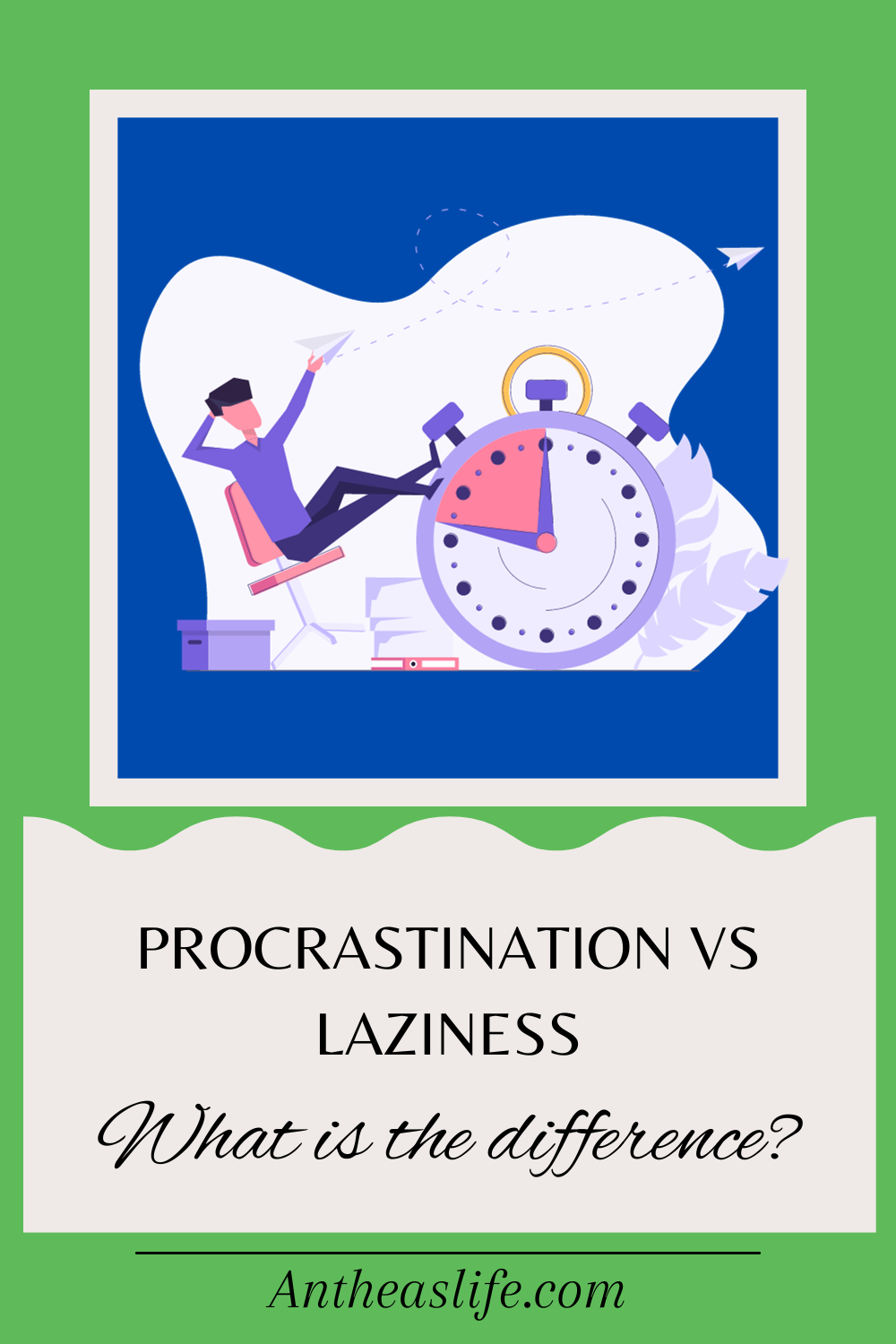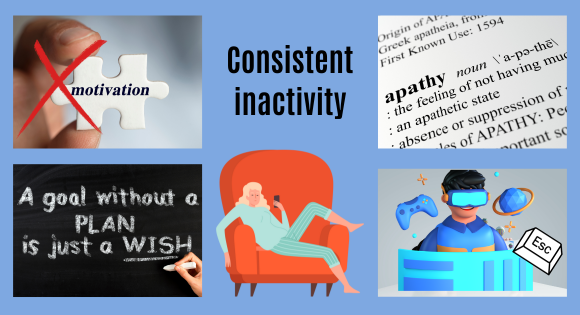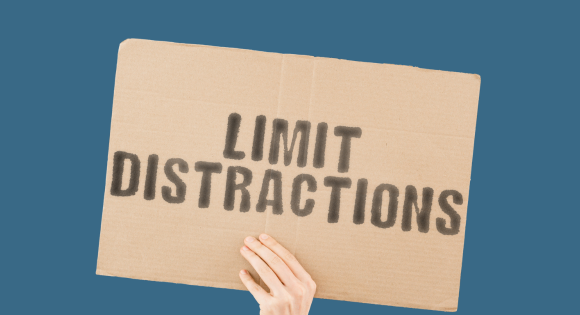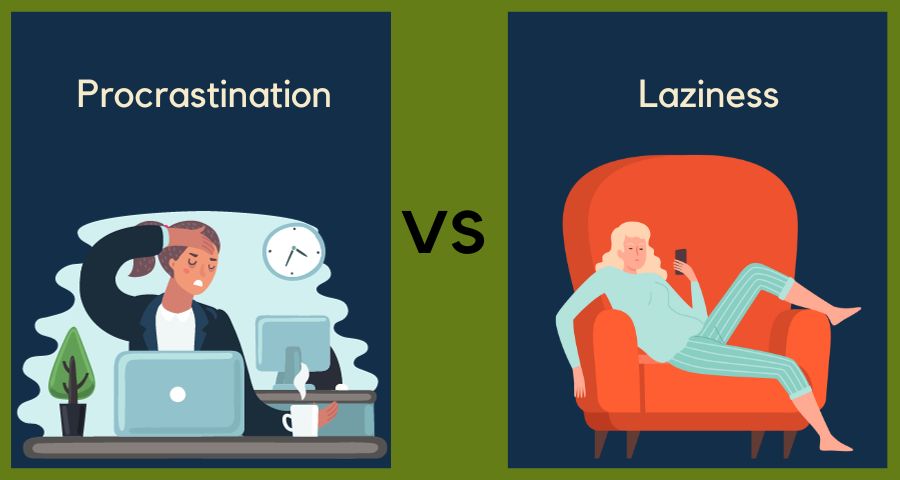Procrastination vs laziness – how do you know that difference? How do you break the cycle of procrastination and stay more focused? Procrastination and laziness are two different concepts that often get thrown around interchangeably; however, they are not the same. They are specific behaviors with unique root causes and implications.
Understanding what separates procrastination and laziness can help you become more self-aware and equip you with the tools to tackle these common challenges in your life. Procrastination and laziness can both hinder your productivity levels, but they have different origins and consequences.
In this blog post, I will delve into both characteristics, explore the psychological and emotional aspects that underlie them, and offer helpful strategies to overcome procrastination and laziness.
Procrastination vs Laziness: What is The Difference?

Procrastination: The Art of Putting Things Off
Procrastination is the annoying habit of putting off tasks, often to the last minute or well beyond their deadlines. People who procrastinate are fully aware of tasks they need to complete, but they choose to delay taking action. Procrastination is usually the result of psychological factors like fear of failure, perfectionism, or a lack of motivation.
Related: 5 Best Tips on How To Improve Your Time Management Skills – Think SMART!
The 4 Main Characteristics of Procrastination
1. Intention to Act
Procrastinators intend to complete tasks eventually, but they continually delay getting started.
2. Time Management Issues
Individuals guilty of procrastination often mismanage their time, underestimating the time needed for a task and overestimating how much time they have on their hands.
3. Stress and Guilt
Procrastination can lead to high levels of guilt and stress when individuals realize the implications of their delays.
4. Excuses and Rationalization
Procrastinators are experts at providing excuses and rationalizations for not completing tasks, often blaming external factors.

The 5 Main Characteristics of Laziness
1. Laziness: The Apathy Ailment
On the other hand, laziness is characterized by a general lack of motivation or desire to engage in any productive activity. It is not about delaying a particular task; it is about a pervasive attitude of indifference towards any form of effort.
2. A Lack of Intent
Lazy persons may not even intend to begin with a task or set clear goals for themselves. They often prefer doing nothing over any form of work.
3. Apathy
Laziness is frequently associated with a lack of interest or enthusiasm for any given task, even those that might be necessary or enjoyable.
4. Consistent Inactivity
Laziness is not restricted to specific tasks but usually affects an individual’s overall lifestyle, leading to extended periods of inactivity.
5. Escaping Reality
Lazy individuals might resort to different forms of escapism, for instance, excessive entertainment or idle daydreaming, anything to avoid any form of work or effort.

Useful Tips For Overcoming Procrastination and Laziness
Understanding what differentiates procrastination and laziness is the first step toward addressing these unhealthy behaviors. Here are some guidelines on how to tackle both:
How To Overcome Procrastination
Set Clear Goals For Yourself
Define your goals and break them up into smaller, more manageable tasks. This can make the process less intimidating and more accomplishable.
Use Time Management Techniques
Tools like time blocking can go a long way in helping you stay focused and use your time more effectively and efficiently.
Address Any Underlying Fears That is Keeping You From Getting Things Done
Recognize and confront the fear of failure or being perfect that may be the cause behind your procrastination. Seek support if necessary.

Practice Self-Compassion
Stop being so hard on yourself when you do slip up. Self-criticism can make procrastination worse.
How To Overcome Laziness
Find Your Passion in Life
Discover activities or interests that genuinely excite you and align with your values. This can reignite your motivation and keep you on the right track.
Set Small, Tangible Goals For Yourself
Begin using baby steps. Gradually build a habit of staying productive and accomplishing small, tangible goals.
Limit Distractions
Identify and restrict the distractions and temptations that feed your laziness and keep you from reaching your goals.

Practice Accountability
Share your goals with someone who can hold you accountable, whether it’s your roommate, a friend, a co-worker, family member, or mentor.
Final Thoughts
Procrastination and laziness are distinct phenomena, each with their own set of challenges and resolutions. By recognizing and acknowledging which behaviors you struggle with, you can take meaningful steps toward becoming more focused, productive, and fulfilled. It’s a journey that may require patience and effort, but the rewards for personal growth and achievement are undoubtedly worth it.
I hope my post about procrastination vs laziness and the distinct differences between them has been insightful and that you will follow some of the above-mentioned guidelines to help you combat procrastination and become more focused and productive.
Sending you much light, love, and productive vibes!
Anthea

